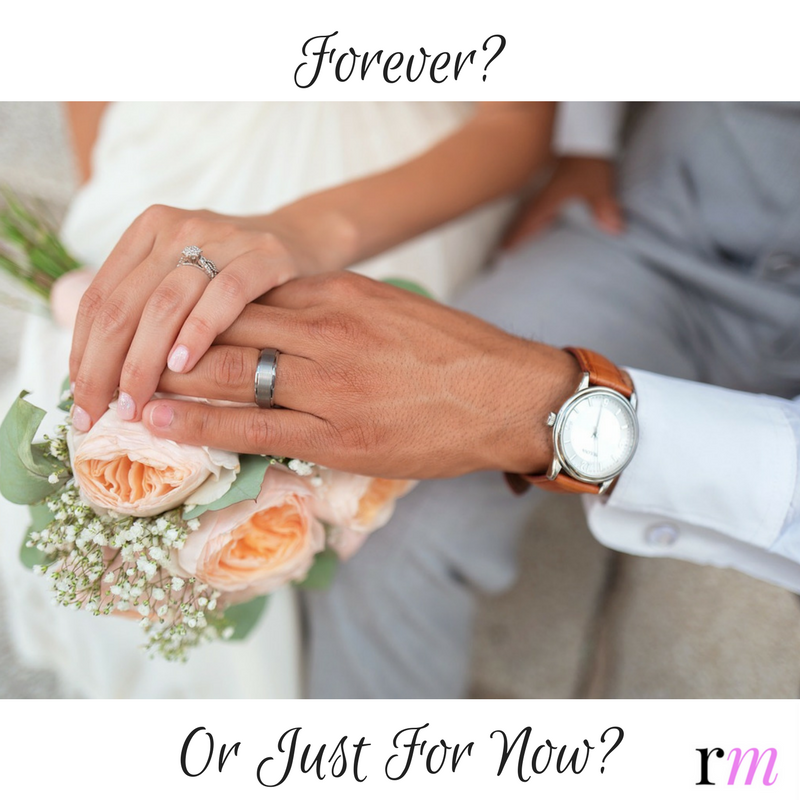Marriage, Trust, and Money
One of the great things about starting a blog is that you have an excuse to do a lot of reading in the name of “official blog research”. I’ve been trying to read books that have real-life stories of working moms and stay-at-home moms to figure out why most of us make the choices we do. Two of the books I’ve found are Mommy Wars, by Leslie Morgan Steiner (liked it, would recommend it), and What Happy Working Mothers Know, by Cathy L. Greenberg and Barrett S. Avigdor (extremely painful to read, would NOT recommend it). I was expecting to read a lot of stories about ambitious women with career goals that they wanted to achieve, and I’ve found a few of those. And I’ve read several from moms who don’t think their family could make it on their husband’s income alone. No surprises with either of those. But what I wasn’t expecting at all were of these stories from women who wanted their own money so that they could:
- Have a back-up plan / emergency fund, in case their husband leaves them
- Have a voice in their family’s big decisions (where to live, for example) and how money will be spent
I think both of these worries come down to trust and a mistaken understanding of what it means to be married. Is our marriage about legally contracted obligations, which either one of us can dissolve on a whim, or is it deeper than that? Can we trust our husbands to support us, and listen to us, even if they don’t have to? What exactly did we do when we said, “I do”?
What if my husband leaves me?
I was totally shocked, first of all, by the number of women who felt that they couldn’t trust their husbands to stick around for the long haul. Some of them had been divorced or abused in the past, but that wasn’t true in every story I read – or even in most. Many women seem to be getting married with a contingency plan already brewing in the back of their minds. They want to hope that their marriage will be permanent, but they also want to be “realistic” and ensure that if their husband leaves, they’ll already have the money and career that they’ll need as a single mother. I can understand where they’re coming from. It’s scary to depend on someone else to provide for you. It can feel foolish and irresponsible in our all-about-me culture to stake your life on the fact that your spouse is going to be there for you when times get tough. But the only approach to marriage that truly works is to give yourself freely and completely to your spouse. No holding back. No back-up plans. You MUST stake your life on the fact that you will be there for each other, no matter what. According to the Catholic Church:
By its very nature conjugal love requires the inviolable fidelity of the spouses. This is the consequence of the gift of themselves which they make to each other. Love seeks to be definitive; it cannot be an arrangement “until further notice.” The “intimate union of marriage, as a mutual giving of two persons, and the good of the children, demand total fidelity from the spouses and require an unbreakable union between them.”
Love cannot be an arrangement “until further notice.” Don’t you love that? I love that. Total fidelity…unbreakable union…there’s not a whole lot of wiggle room here. Marriage was designed – not by any society or legal system – but by God himself. And it has a purpose that is greater than just providing human beings with companionship, or a structure in which to raise children, or financial security. Marital love and fidelity were designed to reflect the love and fidelity of Christ to his church (that’s us!). And Christ loves us no matter what. We can get angry at him, neglect our relationship with him, betray him, even despise him, and he still won’t give up on us. What would it take for you to give up on your spouse?
The deepest reason is found in the fidelity of God to his covenant, in that of Christ to his Church. Through the sacrament of Matrimony the spouses are enabled to represent this fidelity and witness to it. Through the sacrament, the indissolubility of marriage receives a new and deeper meaning. CCC 1647
Now, I am writing all of this as a divorced person. And I want to make it clear that I don’t think that it’s easy, or even POSSIBLE, to do what I’m suggesting without first having a deep faith in the love and fidelity of God and an understanding that marriage is bigger than just the feelings you and your spouse have for each other. I got married without having a clue as to what being married really meant or what it had to do with God. And I got divorced without having a clue as to how that would affect me, my family, or the world around me. I assumed that I was operating inside a bubble consisting of me, my husband, and my kids, and that no one outside of the bubble – including God – had any interest or stake in what was going on in our relationship. One of the saddest consequences of living in a world where everyone’s primary concern is themselves and their own desires is that we fail to realize how connected we are, and how dependent we are on each other, regardless of how well-financed or detailed our contingency plans might be. Marriage demands trust, trust demands love, and true love is unconditional.
What if I want to make some of the decisions?
Many couples seem to believe that the weight of their input on decisions that affect the family is equal to the size of their paycheck. Whoever makes the money, or the most money, gets to decide things like where the family will live, what school the kids will go to, and how the family’s finances in general will be spent. Husband and wife maintain separate bank accounts, split the family’s bills, and make joint financial decisions only when they can’t afford to make a purchase from their own funds alone. I think this is completely contrary to God’s design for marriage and to the success of any marriage, whether you invite God to participate in it or not. Marriage is giving yourself as a free, no-strings-attached gift to your spouse. It is “a deeply personal unity, a unity that, beyond union in one flesh, leads to forming one heart and soul.” (CCC 1643). How can you become one flesh, one heart, one soul, while at the same time trying to claim authority over your spouse based on the amount of money “you” have in “your” bank account? Being married means sharing everything. Everything. Your money. Your love. Your fears, hopes, and dreams. Your bedroom. Your body. Your bank accounts. Your past. Your future. If you can’t trust your husband with all of that, how can you trust him with any of it? And, conversely, if he can’t trust you to make good decisions for your family, how can he trust you at all?
Your worth as a human being, and a wife, has absolutely nothing to do with money. Your marriage cannot be about claiming power over each other. We are called to “Be completely humble and gentle; be patient, bearing with one another in love” (Ephesians 4:2-3). Marriage isn’t a battlefield on which we score victories and suffer defeats; it’s a relationship designed by our creator to help us develop patience and love, to witness God’s love to others, and to provide the very foundation of our society.
Through marriage, we can “overcome self-absorption, egoism, pursuit of one’s own pleasure, and to open oneself to the other, to mutual aid and to self-giving” (CCC 1609).
I know I’ve got a lot of Christian, and specifically Catholic, references in this post. If you don’t share my faith, you’re probably thinking that I haven’t said anything very convincing. So, all Catholic teaching aside, here is my message: a marriage must be based on a complete trust in the other person and a complete gift of yourself. If you leave room for doubt, it will eventually creep in and take over. It’s scary to make that kind of commitment to another person, but what happens when you don’t can be even scarier.




Comments are closed.